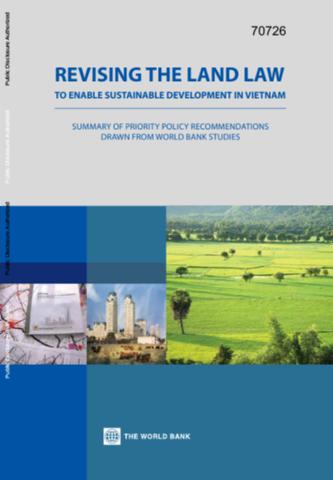Revising the Land Law to Enable Sustainable Development in Vietnam
Vietnam's rapid and sustained economic growth and poverty reduction in the last two decades benefitted from the policy and legal reforms embodied in the Land Laws of 1987, 1993 and 2003 and subsequent related legal acts. This note outlines reforms related to four main themes. The first relates to the needed reform for agriculture land use to create opportunity to enhance effectiveness of land use as well as to secure farmers' rights in land use. Prolonging the duration of agricultural land tenure would give land users greater incentives to invest and care for the land.


